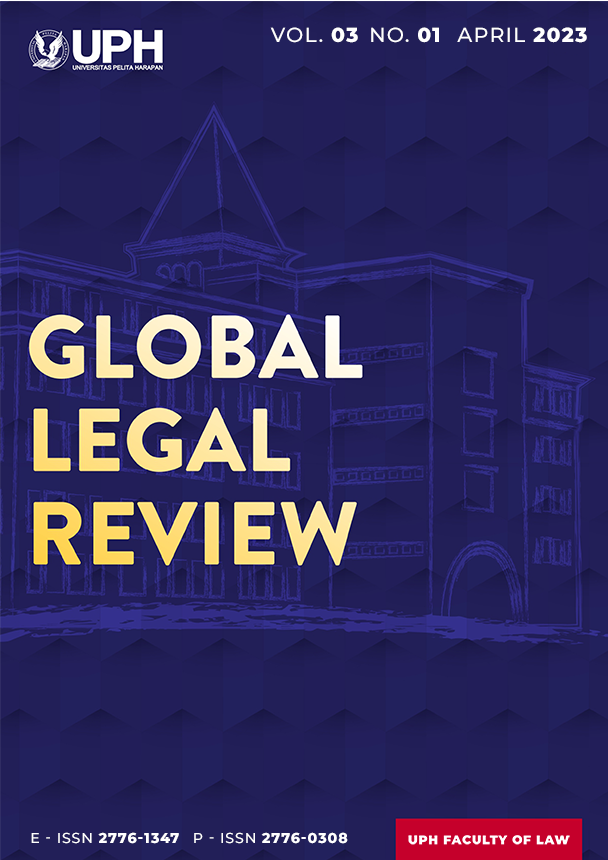Ultimum Remedium Principle in Indonesian Tax Regime - Impact and Challenges Post-Omnibus Law
DOI:
https://doi.org/10.19166/glr.v3i1.5778Schlagworte:
Administrative Penal Law, Tax Crime, Ultimum Remedium Principle, Omnibus LawAbstract
The tax laws are built to ensure that every citizen obeys their obligation on tax. Or, in other perspectives, to guarantee the state does not lose the right to collect tax from the people. Tax laws are part of the state administrative laws. As a consequence, the penalty that is equipped with tax law is also known as administrative sanctions. However, since tax is an essential state element, tax law provided a criminal penalty to give a more complex impact and the value of a deterrent effect (known as administrative penal law). Every tax jurisdiction has characteristics and depends on the state’s main objectives and preferences. Indonesia’s tax regime prioritizes tax collection and the recovery of state losses rather than sending the taxpayer to jail. This concept is known as ultimum remedium or the last remedy principal. After the Corvid-19 pandemic, Indonesia tries to raise the economy through many breakthroughs in tax law, including the enactment of Law of the Republic of Indonesia N0.11 of 2020 on job creation (also known as omnibus law) and Law of the Republic of Indonesia No.7 of 2021 on Harmonization on Tax Regulation. Both regulations have the same spirit to boost Indonesia’s economy through fiscal policy, including relaxation of the tax penalty. With its impact and challenges, this policy is expected to create a broader opportunity for Indoesia tax authorities to collect more taxDownloads
Veröffentlicht
Zitationsvorschlag
Ausgabe
Rubrik
Lizenz
Authors who publish with this journal agree to the following terms:
1) Authors retain copyright and grant the journal right of first publication with the work simultaneously licensed under a Creative Commons Attribution License (CC-BY-SA 4.0) that allows others to share the work with an acknowledgement of the work's authorship and initial publication in this journal.
2) Authors are able to enter into separate, additional contractual arrangements for the non-exclusive distribution of the journal's published version of the work (e.g., post it to an institutional repository or publish it in a book), with an acknowledgement of its initial publication in this journal.
3) Authors are permitted and encouraged to post their work online (e.g., in institutional repositories or on their website). The final published PDF should be used and bibliographic details that credit the publication in this journal should be included.

